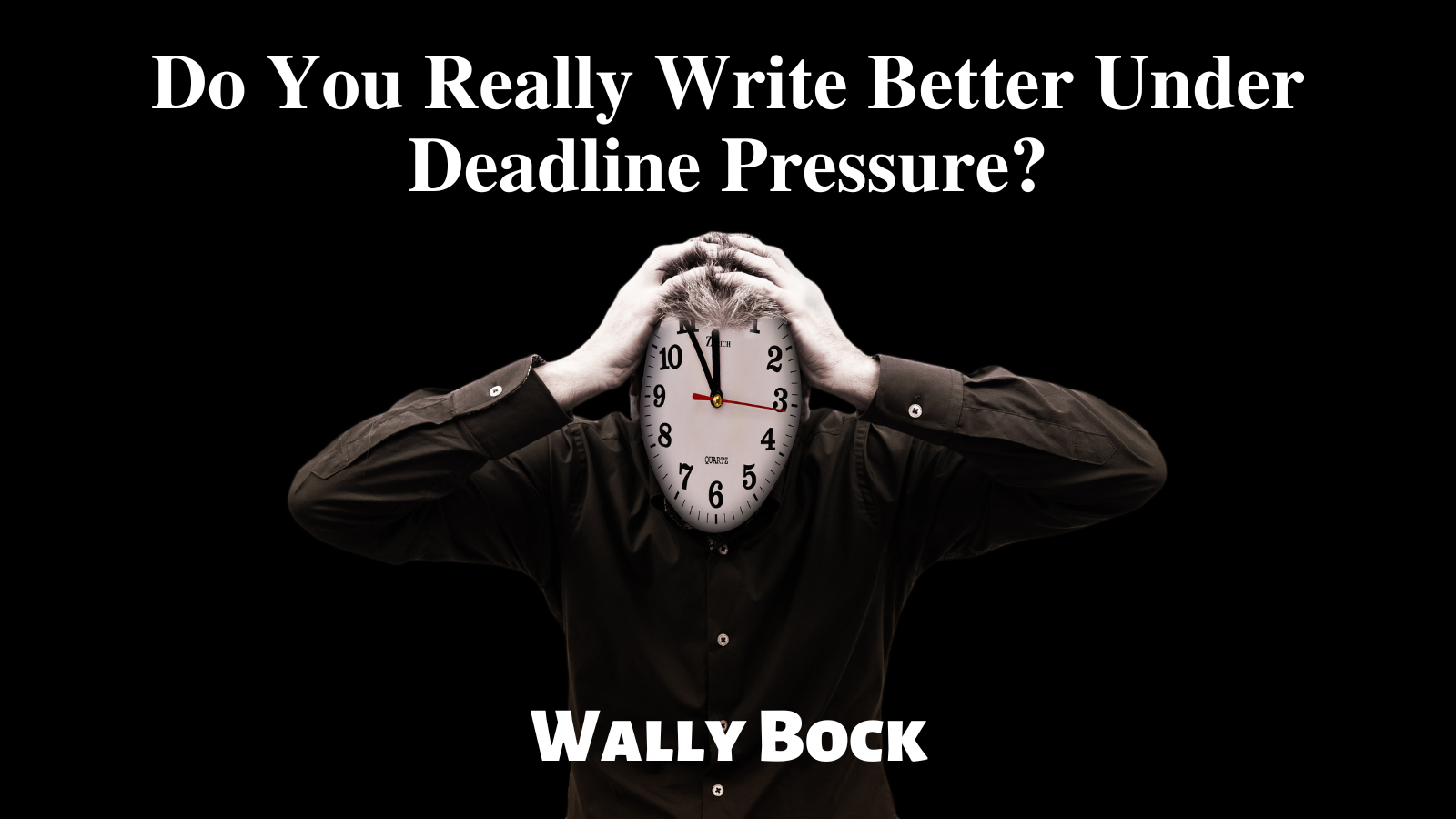John has a book contract. I know that because he told me when he contacted me about getting some advice on his book. Our first session was weird.
We discussed his concept. He seemed to be clear on who would buy his book and why. He was familiar with the material. When I asked him about the deadline. He gave me a date just three months away.
I was stunned. Three months is an awfully short time to crank out a quality manuscript. When I asked John about it, he wasn’t worried. “No problem,” he said, “I work really well under pressure.”
Lots of people think like John. They think if they wait till the last moment, they will create a better book than if they take several months to do it. John’s probably wrong. Most of the other folks who think like John are probably wrong, too.
Deadlines are a fact of life for serious writers. There are deadlines for article submissions. Some deadlines are self-imposed, like my deadline for blog posts. Then there are more distant deadlines like the deadlines for submission of a book manuscript. Every deadline comes with pressure.
In the “yes” column
Some writers say that the adrenaline dump that results from pressure makes you a better writer. They’ve got something there.
Adrenaline can improve your cognitive function. That’s true, but it’s not the whole story. Adrenaline’s positive effects are offset by other factors. And the one thing that adrenaline can’t buy for you is more time.
Now for the bad news
All great writing is iterative. When you see a great piece of work, one that reads easily and makes sense, the writer probably went over it several times, improving it each time.
You get the most improvement when you have time between drafts. When you’re under a deadline, you don’t have time for lots of revisions and spaces between them.
Under deadline pressure, your margin for error disappears
When you speed up your work, you probably increase errors. You tend to cut back on editing and verifying facts. Because your deadline compresses the time available, your margin for error disappears.
When the pressure’s on, your brain doesn’t want to be creative
You’re more creative when you’re relaxed. When you’re on a deadline, you’re not relaxed. That means there will be few ideas coming and less time to work out the ones that do.
The way to eliminate deadline pressure is to eliminate the need to push
Give yourself time to do good work. If you’re taking on a big project like a book, do some work to determine the scope of the project and how you will approach it. Do that right away.
This is strategic procrastination. Give your brain time to play with the ideas and throw up creative solutions. Be sure you have a way to capture those when they come. Stay fresh by touching your project every day. You don’t need to put in a lot of work, but you do need to stay connected so that your brain can stay effective.
Give yourself enough time to do the actual writing. Build in some slack time for the inevitable problems and surprises. When you’re writing, make writing a priority so you hit your quota every day.
Don’t back yourself into a corner or set yourself up to need heroic measures to get your writing done. Don’t believe that you will produce better under deadline pressure. Take action to eliminate the need to push.
Takeaways
Deadlines are a fact of life for serious writers.
You may have an adrenaline dump with performance-boosting effects, but it’s offset by other factors.
Great writing is iterative.
You need space between edits to improve your writing.
Under deadline pressure, your margin for error disappears.
When the pressure’s on, your brain doesn’t want to be creative.
Give yourself time to do good work.
Start on a project as soon as you get it.
Use strategic procrastination.
Touch your project every day.
